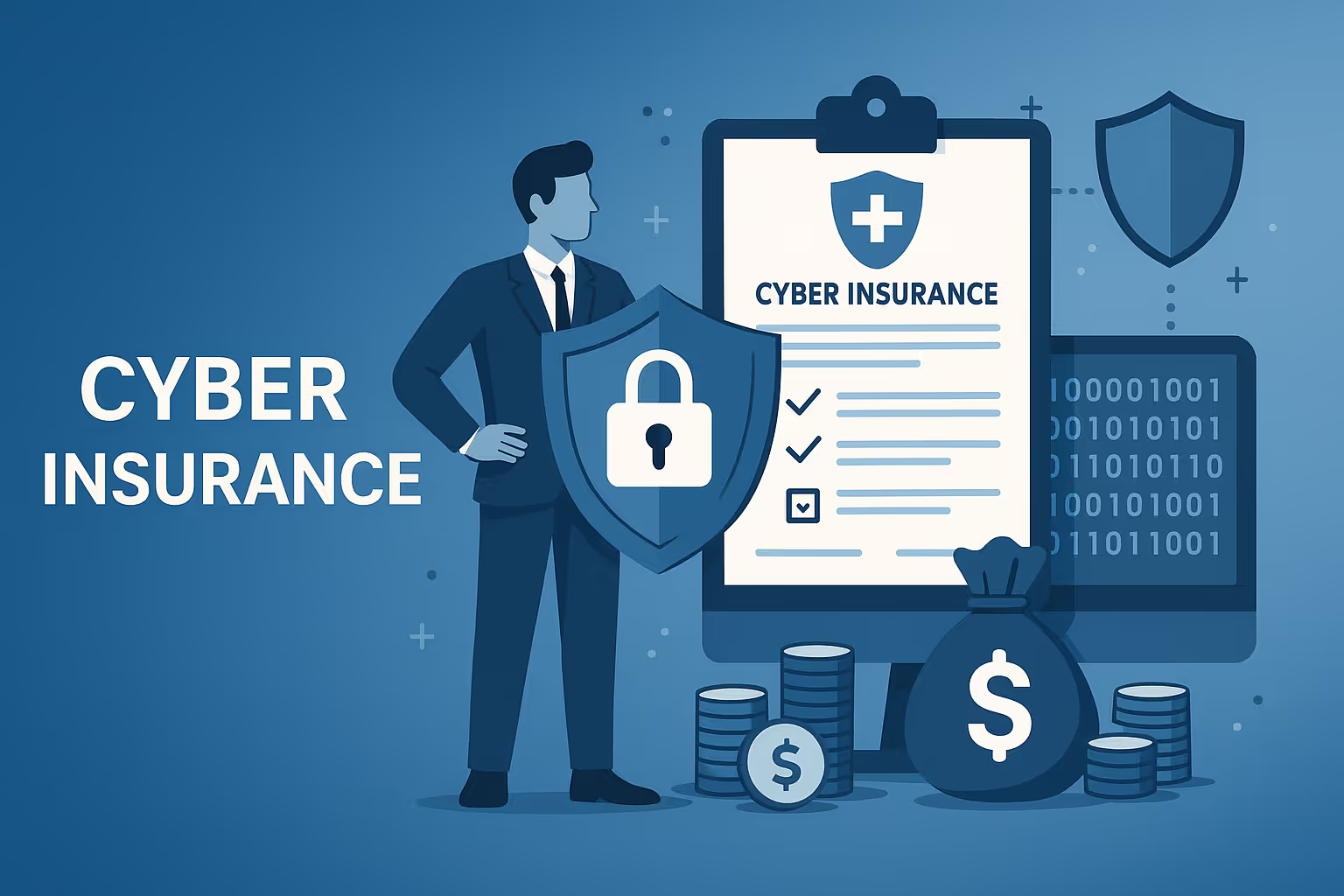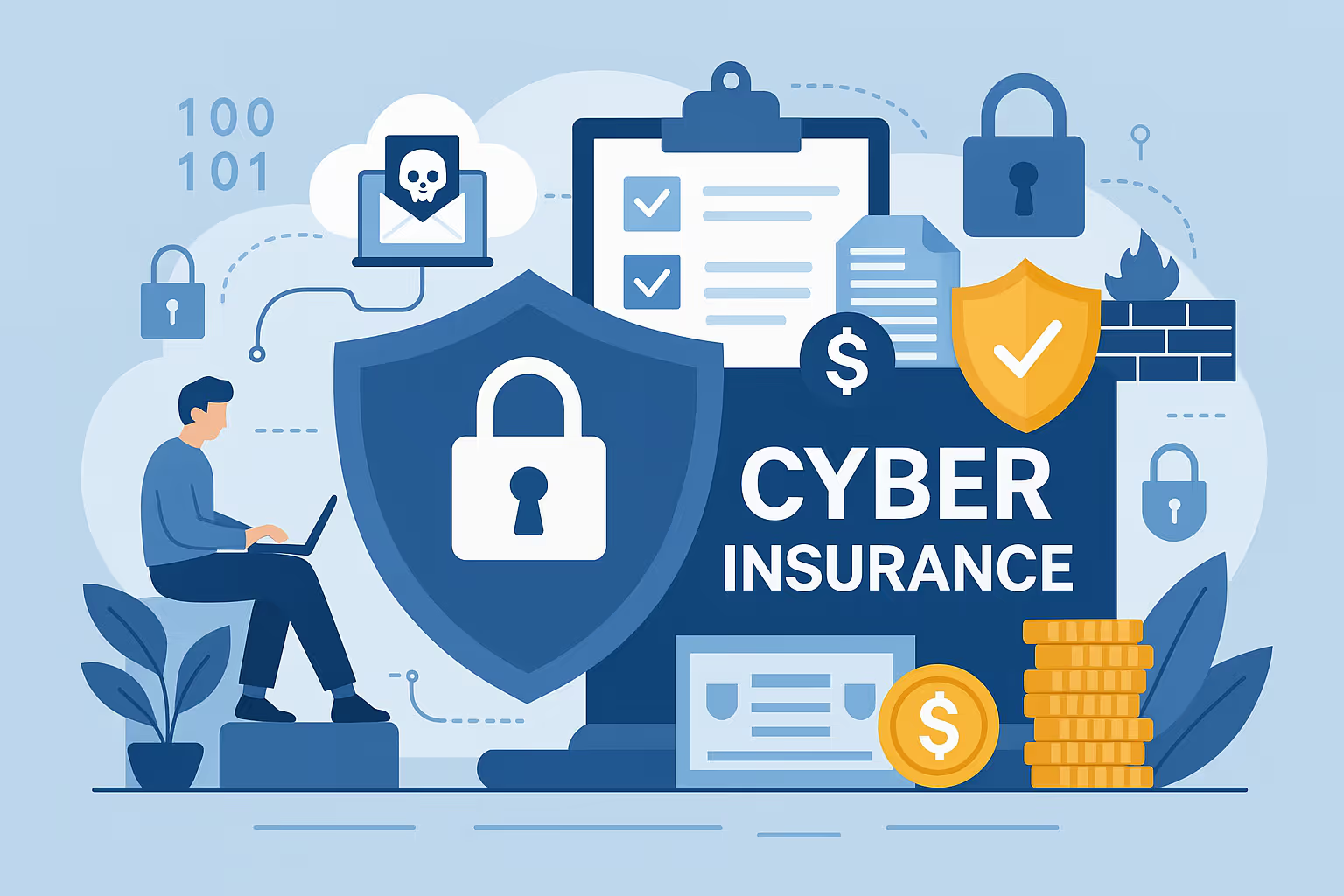
How to get...
For companies in the Energy / Utilities sector in the United States, obtaining cyber insurance involves a series of logical steps that help both in risk management and securing comprehensive coverage. Below is a concise, detailed process:
Adhering to this structured process will ensure that your company understands how to get cyber insurance for Energy / Utilities, aligning your cybersecurity measures with the insurance requirements and ultimately safeguarding your operations from potential cyber threats.

Who provides...
When evaluating providers, energy and utilities organizations should look for coverage that includes breach response, data recovery, regulatory fines, and business interruption support. It is crucial to assess each provider’s expertise in regulatory compliance, experience with incident management, and overall financial strength to ensure that the chosen cyber insurance providers for Energy / Utilities in the United States can effectively safeguard against both cyber and operational risks.


Why need...
U.S. Energy / Utilities organizations face unique cyber threats due to the integration of digital control systems, operational technologies, and legacy systems with limited cybersecurity defenses. Attacks such as ransomware, supply chain compromise, and grid manipulation can disrupt essential services, affect public safety, and cause extensive financial losses.
Cyber insurance for Energy / Utilities in the United States helps mitigate these risks by providing a financial safety net against the costly consequences of a breach. This coverage supports recovery efforts, regulatory fines, and legal defense while addressing the overall operational and reputational damages.
In summary, cyber insurance for Energy / Utilities provides essential protection that supports quick recovery, enhances resilience, and ensures that organizations can continue delivering critical services even after a cyber incident.
Cyber insurance coverage for Energy / Utilities in this area addresses costs associated with unauthorized access, exposure, or theft of sensitive data including customer records, operational data, and intellectual property. It often covers legal fees, public relations efforts, notification expenses, and credit monitoring for affected parties. This coverage matters for Energy / Utilities organizations in the U.S. due to the critical nature of their data in maintaining infrastructure integrity and regulatory compliance. Its impact is seen in faster breach recovery, reduced liability exposure, and enhanced trust from regulators and customers.
The cyber insurance coverage for Energy / Utilities under Business Interruption addresses the loss of income and increased operating costs during a cyber incident-induced operational disruption. It typically covers costs related to system downtime, restoration of operations, and sometimes third-party service dependencies. This protection is crucial in the U.S. Energy / Utilities sector where even minor interruptions can lead to significant adverse impacts on service delivery, regulatory fines, and reputational damage. By mitigating downtime, organizations maintain operational resilience and financial stability.
This coverage element protects organizations against threats such as ransomware attacks and cyber extortion demands. Cyber insurance coverage for Energy / Utilities usually includes crisis management costs, ransom payments (where legally permissible), and expert consulting fees to negotiate with attackers while securing systems. Its importance in the Energy / Utilities sector is heightened by the high likelihood of targeted attacks aimed at critical infrastructure. The inclusion of this coverage provides financial security and supports rapid incident response, helping maintain service continuity and public safety.
Regulatory Defense & Fines coverage is designed to help organizations meet legal and regulatory responsibilities following a cyber incident. Cyber insurance coverage for Energy / Utilities in this context often covers legal defense costs, regulatory penalties, and settlements resulting from data breaches or non-compliance with state and federal guidelines. This is particularly relevant for Energy / Utilities companies in the U.S. as they are subject to rigorous oversight which demands transparency and swift corrective actions post-incident. Effective regulatory defense ensures continuity in operations, mitigates financial losses, and preserves corporate reputation amid legal scrutiny.
Build Security with OCD Tech That Meets the Standard — and Moves You Forward
Contact Us
US Energy/Utilities cyber insurance enforces strict controls. It requires thorough risk evaluation. It secures power and assets.
Secure Your Business with Expert Cybersecurity & Compliance Today
Contact Us


Differences by State...
The state-specific impacts on cyber insurance for Energy / Utilities mean organizations need to assess not only their internal cybersecurity posture but also remain informed about local state legislation and evolving regulatory environments. This proactive approach ensures adequate coverage, appropriate premium pricing, and compliance with varying state mandates across New York, California, Texas, and beyond.

Compliance & Frameworks...
In the Energy / Utilities sector, aligning with standards such as NIST CSF and ISO 27001 is essential for achieving robust cybersecurity practices. These frameworks guide companies to assess, manage, and reduce cybersecurity risks and are critical in determining eligibility and premiums for cyber insurance for Energy / Utilities. Insurers use these frameworks to evaluate a company's security posture, ensuring that risk management practices meet industry standards.
State-level and industry-specific mandates further shape underwriting criteria and premium computations. For example:
These regulatory frameworks and mandates directly influence how cyber insurance policies are structured. A well-documented compliance program can lead to:
In summary, companies in the Energy / Utilities sector must integrate these frameworks into their cybersecurity strategy. This not only supports regulatory compliance but also optimizes their standing when seeking cyber insurance for Energy / Utilities, resulting in more favorable insurance terms and enhanced overall protection.

Audit. Security. Assurance.
IT Audit | Cybersecurity | IT Assurance | IT Security Consultants – OCD Tech is a technology consulting firm serving the IT security and consulting needs of businesses in Boston (MA), Braintree (MA) and across New England. We primarily serve Fortune 500 companies including auto dealers, financial institutions, higher education, government contractors, and not-for-profit organizations with SOC 2 reporting, CMMC readiness, IT Security Audits, Penetration Testing and Vulnerability Assessments. We also provide dark web monitoring, DFARS compliance, and IT general controls review.
Contact Info
.svg)
OCD Tech
.svg)
25 BHOP, Suite 407, Braintree MA, 02184
.svg)
844-623-8324
.svg)
https://ocd-tech.com
Follow Us
Videos
Check Out the Latest Videos From OCD Tech!
Services
SOC Reporting Services
– SOC 2 ® Readiness Assessment
– SOC 2 ®
– SOC 3 ®
– SOC for Cybersecurity ®
IT Advisory Services
– IT Vulnerability Assessment
– Penetration Testing
– Privileged Access Management
– Social Engineering
– WISP
– General IT Controls Review
IT Government Compliance Services
– CMMC
– DFARS Compliance
– FTC Safeguards vCISO